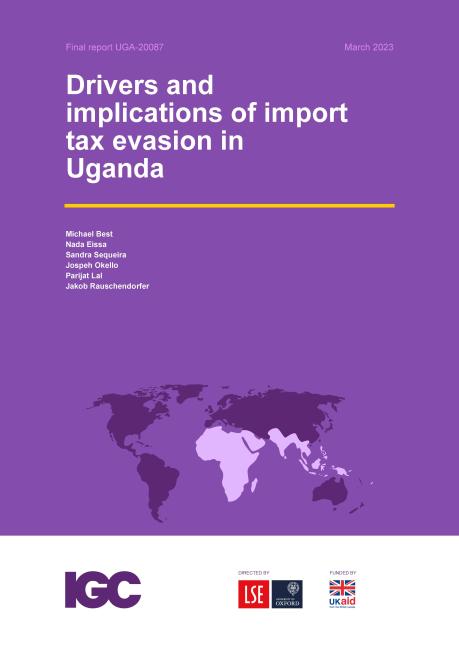Tax evasion in customs: Firm level evidence from Uganda
Developing countries are constrained by a lack of resources to fund growth enhancing public investments. Trade taxes are one important source of tax revenues for almost all of these economies. Uganda is no exception: In fiscal year 2017/18 revenues from import duties (tariffs) alone contributed about 8.5 percent to total tax collection.
For this project we propose to overcome these limitations and consider customs evasion at the firm level by exploiting newly sourced administrative datasets from Uganda. A firm level measure of evasion allows us to study questions of interest to policy makers previously not considerable: What firm characteristics are predictive of evasive behaviour in customs? What role play privately owned, commercial firms that mediate between the government and the importer?
Our research speaks directly to Uganda’s policy objective to raise domestic revenues through improved tax administration to finance public investments for inclusive growth. Despite the importance of trade taxes and ample anecdotal evidence on evasion this topic has received little attention so far. The government partners for this study are the Research, Planning and Development Department and the Customs & Excise Department of the Uganda Revenue Authority, as well as the Ministry of Finance, Planning and Economic Development.
To study import tax evasion in Uganda we proceed in two steps. First, we build a comprehensive database from a wealth of administrative datasets sourced from the URA for this study. We then explore suitable measures of tax evasion in customs at the firm level. We then combine these measures with other URA tax data that allow us to study the role of (and interaction between) firm characteristics, customs clearing agents and customs officers in explaining evasion.




